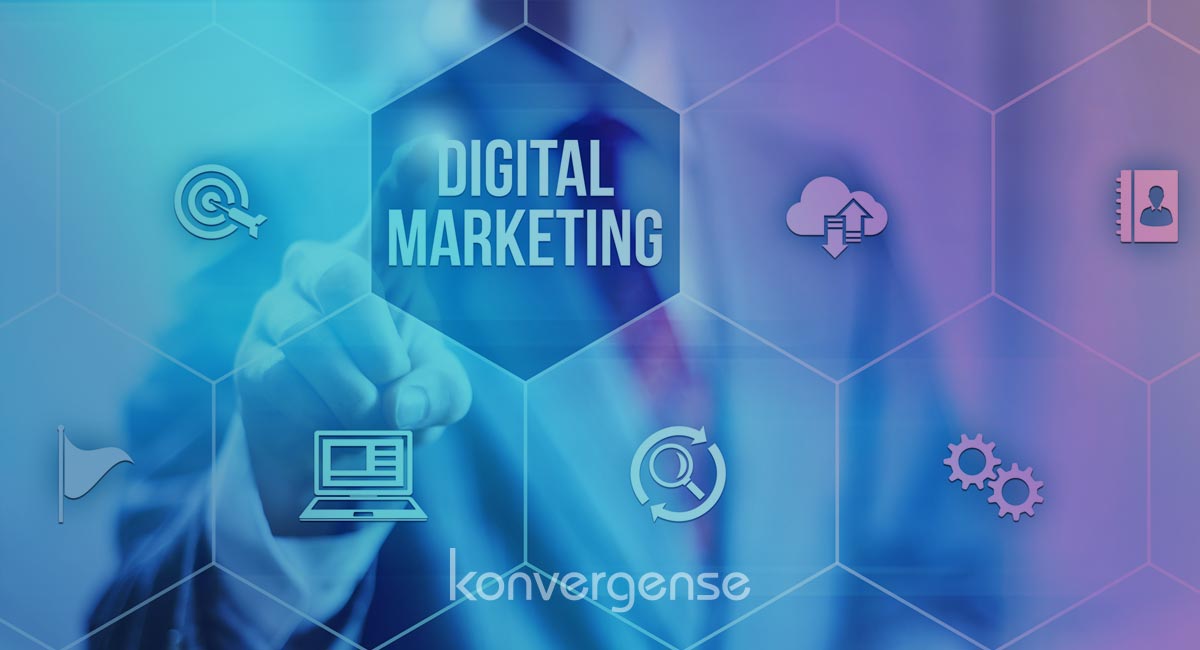The importance of digital marketing agency for small businesses cannot be overstated. In today’s digital age, having a strong online presence is crucial for business success. This blog post will outline 15 essential digital marketing strategies that small businesses should consider implementing to reach their target audience, increase brand visibility, and drive conversions.
Search Engine Optimization (SEO)
Search Engine Optimization (SEO) is the practice of optimizing your website to rank higher in search engine results pages. It involves conducting keyword research, optimizing on-page elements, building high-quality backlinks, and monitoring performance through analytics.
- Keyword research and analysis
- On-page optimization techniques
- Off-page optimization and link building strategies
- Technical SEO considerations
- Tracking and measuring SEO performance
Content Marketing
Content marketing involves creating and distributing valuable and relevant content to attract and engage your target audience. It includes developing a content strategy, creating various types of content such as blogs, videos, and infographics, and distributing them through different channels.
- Developing a content strategy
- Creating high-quality and engaging content
- Incorporating various content formats (blogs, videos, infographics)
- Content distribution and promotion strategies
- Content repurposing and recycling
Social Media Marketing
Social media marketing focuses on utilizing social media platforms to promote your brand, engage with your audience, and drive traffic to your website. It involves selecting the right platforms, creating engaging content, building a social media community, and utilizing social media advertising.
- Choosing the right social media platforms
- Creating compelling social media content
- Building and engaging with a social media community
- Social media advertising and sponsored content
- Tracking social media performance and metrics
Email Marketing
Email marketing is the process of sending targeted emails to your subscribers to nurture relationships and drive conversions. It includes building an email list, crafting effective email campaigns, personalizing content, and analyzing metrics for optimization.
- Building an email list and growing subscribers
- Crafting effective email campaigns
- Personalization and segmentation strategies
- Designing visually appealing email templates
- Automation and drip campaigns
- Analyzing email marketing metrics for optimization
Pay-Per-Click (PPC) Advertising
PPC advertising involves placing targeted ads on search engines or social media platforms and paying for each click. It requires keyword research, ad creation, landing page optimization, and continuous monitoring and optimization.
- Choosing the right PPC platform (Google Ads, Facebook Ads)
- Keyword research and selection
- Creating compelling ad copy and visuals
- Setting up landing pages and conversion tracking
- Monitoring and optimizing PPC campaigns
Conversion Rate Optimization (CRO)
Conversion Rate Optimization (CRO) focuses on improving the percentage of website visitors who take desired actions. It includes analyzing user behavior, conducting A/B testing, optimizing website design, and enhancing call-to-action elements.
- Analyzing user behavior and conducting A/B tests
- Optimizing website design and user experience
- Improving call-to-action (CTA) effectiveness
- Multivariate testing and heatmapping
- Continual optimization and analysis of conversion rates
Social Media Advertising
Social media advertising involves running paid ads on social media platforms to reach a wider audience and achieve specific marketing goals. It requires audience targeting, ad creation, budget management, and performance tracking.
- Targeting specific audience segments
- Creating effective ad campaigns
- Ad format and design best practices
- Budgeting and bid strategies
- Measuring and optimizing ad performance
Influencer Marketing
Influencer marketing leverages the popularity and influence of individuals in your industry to promote your products or services. It involves identifying relevant influencers, establishing partnerships, and measuring the impact of influencer campaigns.
- Identifying relevant influencers for your industry
- Establishing partnerships and collaborations
- Developing effective influencer campaigns
- Tracking and measuring the impact of influencer marketing
- Legal and ethical considerations in influencer marketing
Online Reputation Management
Online reputation management focuses on monitoring and maintaining a positive brand image online. It includes tracking brand mentions, managing customer reviews, responding to feedback, and utilizing reputation management tools.
- Monitoring brand mentions and customer reviews
- Responding to customer feedback and complaints
- Building a positive online brand image
- Handling online reputation crises
- Utilizing online reputation management tools and services
Analytics and Data-driven Decision Making
Analytics provides valuable insights into the performance of your marketing efforts. It involves implementing website analytics tools, tracking key metrics, making data-driven decisions, and optimizing marketing strategies based on insights.
- Implementing website analytics tools (Google Analytics)
- Tracking and analyzing key performance metrics
- Utilizing data for informed marketing decisions
- Measuring campaign effectiveness and ROI
- Continuous optimization based on data insights
Mobile Marketing
Mobile marketing targets users on mobile devices to reach them wherever they are. It includes optimizing websites for mobile, creating mobile-responsive email campaigns, and utilizing mobile-specific advertising strategies.
- Optimizing websites for mobile devices
- Creating mobile-responsive email campaigns
- Developing mobile apps and leveraging push notifications
- Location-based marketing strategies
- Mobile advertising and targeting
Video Marketing
Video marketing utilizes videos to engage and connect with your audience. It involves creating compelling video content, optimizing videos for platforms like YouTube, and measuring performance and engagement metrics.
- Creating engaging and shareable video content
- YouTube marketing and optimization
- Leveraging videos on social media platforms
- Live streaming and video storytelling
- Measuring video performance and engagement metrics
Local SEO
Local SEO focuses on optimizing your online presence to target customers in specific geographic locations. It involves optimizing Google My Business listing, targeting local keywords, and managing online reviews and reputation locally.
- Optimizing Google My Business listing
- Local keyword research and targeting
- NAP consistency and local citations
- Managing online reviews and reputation locally
- Local content optimization
Integrated Marketing Strategies
Integrated marketing strategies involve combining multiple digital marketing channels and tactics to create a cohesive and unified approach. It includes aligning messaging and branding across channels, utilizing cross-promotion, and tracking results to ensure consistent and effective marketing.
- Aligning messaging and branding across multiple digital marketing channels
- Utilizing cross-promotion to reinforce brand awareness and reach
- Integrating various tactics such as SEO, content marketing, social media, and email marketing
- Creating a unified customer experience across different touch points
- Tracking and measuring results to ensure the effectiveness of the integrated approach
Conclusion:
In today’s digital landscape, small businesses need to leverage effective digital marketing strategies to thrive and succeed. This comprehensive guide has highlighted 10 essential strategies that can help small businesses establish a strong online presence, reach their target audience, and drive conversions. From search engine optimization (SEO) to social media marketing, email marketing to influencer partnerships, each strategy plays a crucial role in building brand visibility and engaging with customers. By implementing these strategies and continually optimizing based on data and insights, small businesses can stay competitive and achieve their marketing goals in the digital realm.
FAQ (Frequently Asked Questions):
Q1: How long does it take to see results from digital marketing strategies?
A: The timeframe for seeing results can vary depending on various factors such as the competitiveness of the industry, the effectiveness of the strategies implemented, and the consistency of efforts. Generally, it takes time to build a strong online presence and see significant results. It’s important to set realistic expectations and understand that digital marketing is an ongoing process that requires continuous effort and optimization.If you are more interested to explore Digital marketing agency in dubai
Q2: Which digital marketing strategy should small businesses prioritize?
A: The priority may vary based on the specific business goals and target audience. However, a good starting point is to focus on establishing a strong foundation with search engine optimization (SEO) and content marketing. These strategies help improve organic visibility and attract relevant traffic to your website. From there, businesses can expand into other strategies like social media marketing, email marketing, and paid advertising based on their objectives and resources.
Q3: How can I measure the effectiveness of my digital marketing efforts?
A: Measurement and tracking are essential to evaluate the effectiveness of your digital marketing strategies. Utilize tools like Google Analytics to track website traffic, conversions, and engagement metrics. Set up specific goals and track key performance indicators (KPIs) relevant to your objectives. Regularly analyze the data and make data-driven decisions to optimize your campaigns. Additionally, feedback from customer surveys, social media listening, and online reviews can provide valuable insights into the impact of your marketing efforts.
Q4: Do I need to hire a digital marketing agency or can I handle it in-house?
A: The decision to hire a digital marketing company or manage it in-house depends on factors such as budget, expertise, and time availability. Small businesses with limited resources may find it beneficial to partner with a digital marketing agency that can provide expertise, experience, and a comprehensive strategy. However, with the right knowledge and resources, it is possible to handle digital marketing in-house. It’s crucial to assess your specific needs, capabilities, and the potential return on investment before making a decision.
Q5: Are these strategies applicable to all types of small businesses
A: While the strategies discussed in this article are applicable to most small businesses, it’s important to adapt and customize them based on your industry, target audience, and business goals. Every business has unique characteristics and may require a tailored approach. Consider your specific circumstances, conduct market research, and experiment with different strategies to find the ones that work best for your business.
Remember, digital marketing is a dynamic field, and staying updated with industry trends, consumer behavior, and emerging technologies is crucial for long-term success.




